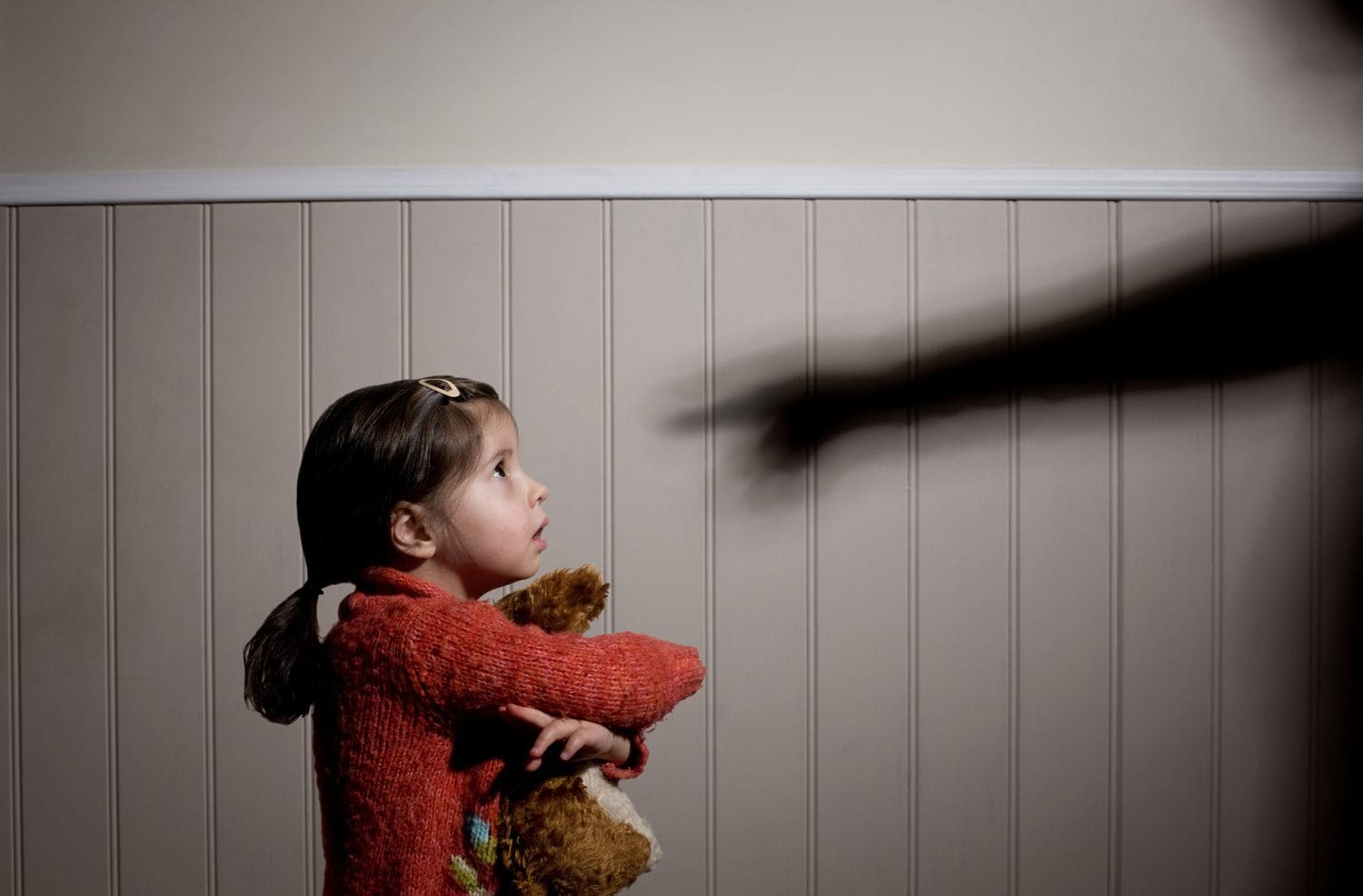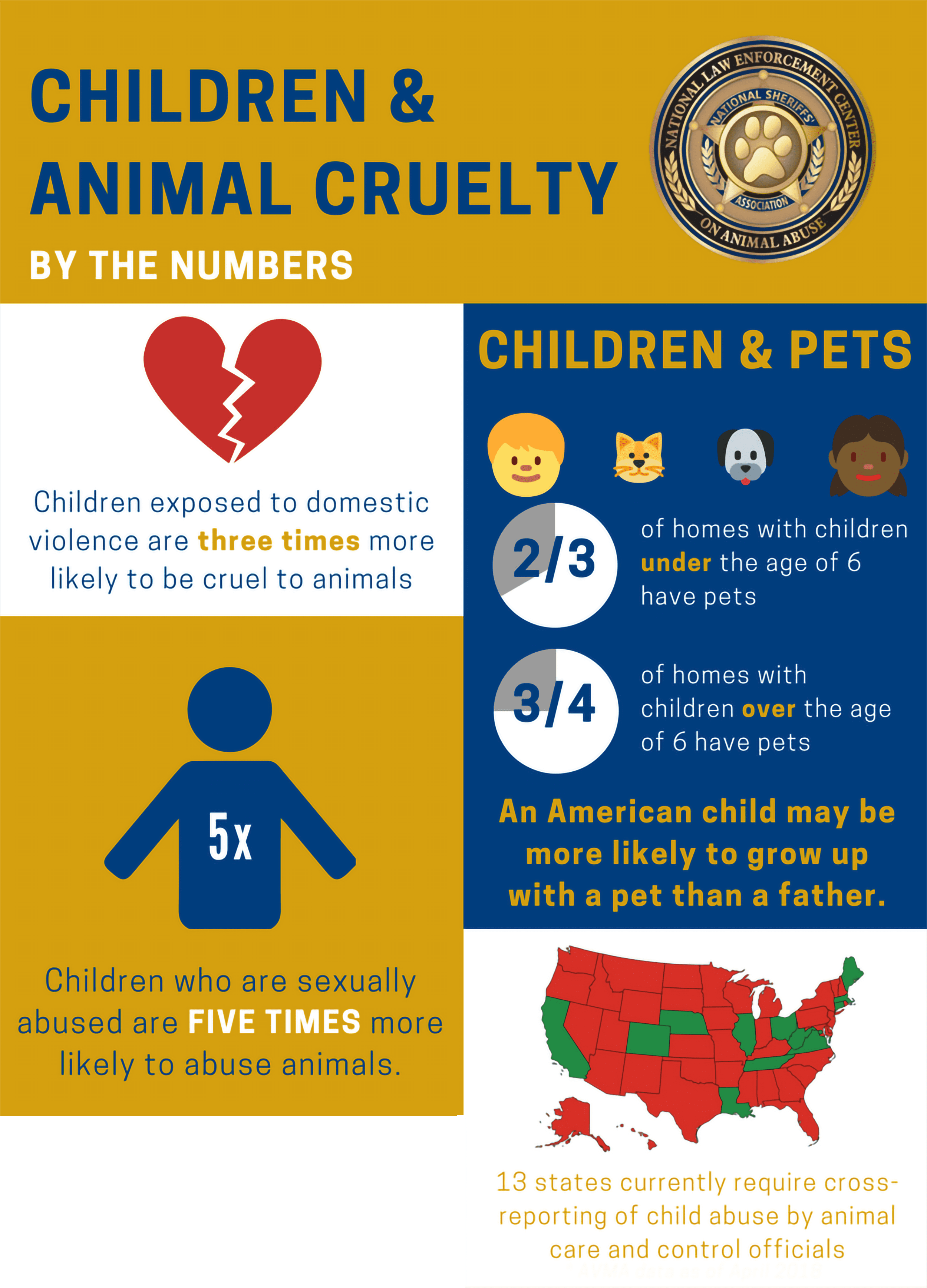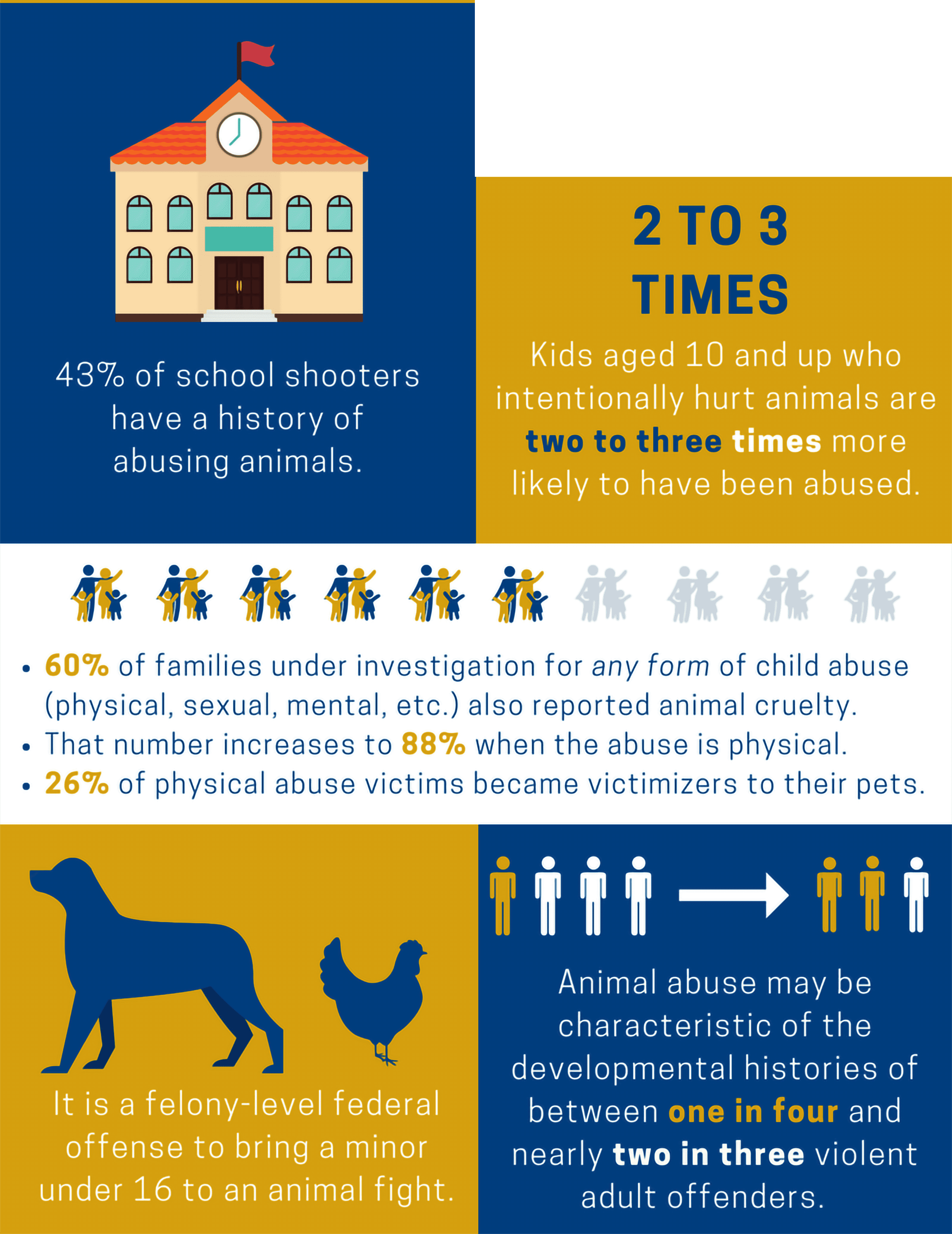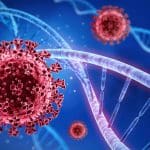Childhood abuse and its long-term effects have been extensively studied and documented. However, one aspect that often goes unnoticed is the link between childhood abuse and future acts of animal cruelty. This connection has been observed and studied by experts in the fields of psychology, sociology, and animal welfare. In recent years, cases of animal cruelty have been on the rise and it has become a growing concern for our society. The impact of such acts not only affects the innocent animals but also has a profound impact on the individuals who commit such heinous acts. Through various research studies and real-life cases, it has been found that there is a strong correlation between childhood abuse and future acts of animal cruelty. This article aims to delve deeper into this subject and explore the reasons behind this connection. Understanding this connection is crucial in order to prevent future acts of animal cruelty and also to provide better care and support for individuals who have experienced childhood abuse. By examining the root causes and potential solutions, we can work towards creating a more compassionate and safer society for both humans and animals alike.

Childhood trauma can influence behavior
Numerous studies have shown that childhood trauma can have significant and lasting effects on an individual’s behavior. Traumatic experiences during childhood, such as physical, emotional, or sexual abuse, neglect, or witnessing violence, can shape the way a person thinks, feels, and behaves later in life. This is particularly evident in cases where individuals who have experienced childhood abuse exhibit aggressive or violent tendencies, including acts of animal cruelty. While it is important to note that not all individuals who have suffered childhood trauma engage in such behaviors, research suggests a clear connection between early adverse experiences and an increased likelihood of engaging in harmful actions towards animals. Understanding this link can inform prevention and intervention strategies aimed at breaking the cycle of abuse and promoting healthier, more compassionate behaviors.
Abused children more likely abusive
The impact of childhood abuse on an individual’s propensity for abusive behavior is a concerning and complex issue. Research has consistently demonstrated a correlation between childhood abuse and an increased likelihood of perpetuating abusive behaviors later in life. This connection can be attributed to various factors, including the learned behavior from the abuser, the normalization of violence within the household, and the psychological and emotional trauma experienced by the child. It is important to emphasize that not all abused children become abusers themselves, as resilience and support systems can play a significant role in breaking this cycle. Nevertheless, understanding the link between childhood abuse and future acts of abuse is critical in order to develop effective intervention programs, promote healing and recovery, and protect vulnerable individuals from perpetuating the cycle of violence.
Animal abuse often linked to abuse
The mistreatment and abuse of animals is a distressing issue that warrants attention and intervention. It is important to acknowledge the correlation between childhood abuse and acts of animal cruelty as a concerning pattern that has been observed in numerous studies. Children who have experienced abuse themselves may be more prone to exhibiting abusive behavior towards animals as a means of exerting control or expressing their unresolved anger and frustration. Additionally, witnessing or being exposed to animal abuse within the household can normalize such behaviors and perpetuate a cycle of violence. It is crucial for society to address this connection in order to protect both animals and individuals from further harm, and to provide appropriate support and resources for those who have experienced abuse in their childhood.
Early intervention can prevent violence
Early intervention can play a crucial role in preventing acts of violence, including animal cruelty. Research has shown that addressing the underlying factors that contribute to violent behavior during early stages can have a significant impact on future outcomes. By identifying and addressing risk factors, such as childhood abuse, neglect, or exposure to violence, we can intervene at a critical juncture in a person’s development. Providing targeted support and resources to individuals who have experienced these adverse childhood experiences can help mitigate the potential for engaging in violent behaviors later in life. Through early intervention programs that focus on promoting healthy coping mechanisms, empathy, and positive social interactions, we can break the cycle of violence and create a safer and more compassionate society for both humans and animals alike.
Understanding root causes is crucial
To truly address the issue of future acts of animal cruelty, it is crucial to have a comprehensive understanding of the root causes behind such behavior. This requires delving deeper into the complex interplay of individual, environmental, and societal factors that contribute to the development of violent tendencies. By examining the impact of adverse experiences, such as childhood abuse or trauma, we can begin to unravel the underlying mechanisms that may lead to acts of cruelty towards animals. It is essential to recognize that these behaviors do not occur in isolation but are often symptomatic of deeper psychological distress or unresolved trauma. By understanding these root causes, we can develop targeted interventions and prevention strategies that address the underlying issues and promote positive behavioral change. Only through a holistic approach can we effectively address the connection between childhood abuse and future acts of animal cruelty, fostering a society that values compassion and empathy for both humans and animals.
Childhood abuse can desensitize individuals
Childhood abuse is a deeply disturbing experience that can have long-lasting effects on individuals. One of the consequences of such abuse is the potential desensitization of emotions and empathy. When children are subjected to physical, emotional, or sexual abuse, their natural and healthy emotional responses may be suppressed or numbed as a coping mechanism. This desensitization can extend into adulthood, impacting the individual’s ability to empathize with others, including animals. The lack of ability to connect with and understand the suffering of living beings can contribute to a higher likelihood of future acts of animal cruelty. It is crucial to address and heal the underlying trauma from childhood abuse to prevent the perpetuation of this harmful cycle and promote a more compassionate society.
Importance of addressing past trauma
Addressing past trauma is of utmost importance for individuals who have experienced childhood abuse. It is not only crucial for their own personal healing and well-being but also for the prevention of further harm to themselves and others. Unresolved trauma can have a significant impact on various aspects of an individual’s life, including their relationships, mental health, and overall quality of life. By seeking professional help and addressing past trauma, individuals can begin the journey of healing, gaining a better understanding of themselves, and developing healthier coping mechanisms. Furthermore, addressing past trauma can help break the cycle of abuse and prevent the potential for future acts of violence or cruelty towards animals or other individuals. It is essential to acknowledge the importance of addressing past trauma and providing the necessary support and resources to those who have experienced childhood abuse.
Animal cruelty is a red flag
Instances of animal cruelty should never be taken lightly, as they often serve as red flags for deeper underlying issues. Research has consistently shown a link between acts of animal cruelty and a higher likelihood of engaging in future violent or harmful behaviors towards both animals and humans. Recognizing and addressing these warning signs is crucial in order to prevent further harm and ensure the safety of both animals and society as a whole. By identifying and intervening in cases of animal cruelty, we can potentially break the cycle of violence and provide individuals with the necessary support and resources to address the root causes of their actions.
Education and awareness are key
In order to effectively address and prevent instances of animal cruelty, education and awareness play a pivotal role. By educating individuals about the significant impact of animal cruelty on both animals and society, we can foster a sense of empathy and compassion towards all living beings. This includes raising awareness about the connection between childhood abuse and future acts of animal cruelty, as it highlights the importance of early intervention and support. Providing educational programs and resources that focus on animal welfare and the consequences of mistreatment can help individuals develop a greater understanding of the ethical and legal implications of their actions. Furthermore, promoting responsible pet ownership through education can help prevent neglect and abuse, ensuring that animals are provided with the care and respect they deserve. By prioritizing education and awareness initiatives, we can create a more compassionate and empathetic society that actively works towards preventing animal cruelty.
Break the cycle of abuse
Addressing the cycle of abuse is essential for breaking the patterns of violence and creating a safer and more nurturing society. By focusing on early intervention and providing support to individuals who have experienced abuse, we can help break the cycle and prevent future acts of cruelty. This involves implementing comprehensive programs and services that offer therapeutic interventions, counseling, and resources for both children and adults who have been victims of abuse. It is crucial to provide a safe and supportive environment where individuals can heal from their traumatic experiences, learn healthy coping mechanisms, and develop positive relationships. Additionally, raising awareness about the impact of abuse and promoting education on healthy relationships can empower individuals to recognize and prevent abusive behaviors. By breaking the cycle of abuse, we can create a better future for both individuals and the wider community.
In conclusion, it is clear that there is a connection between childhood abuse and future acts of animal cruelty. While more research is needed to fully understand the specifics of this link, it is important for us as a society to recognize and address this issue. Early intervention and education on proper treatment of animals can help prevent future acts of cruelty and create a more compassionate and humane world. Let us strive to break the cycle of violence and promote empathy and kindness towards all living beings.


FAQ
Is there a proven link between childhood abuse and future acts of animal cruelty?
There is evidence to suggest a link between childhood abuse and future acts of animal cruelty. Numerous studies have found that individuals who have experienced childhood abuse are more likely to display aggressive and violent behaviors towards animals later in life. This connection may be attributed to various factors, such as learned behavior or the manifestation of unresolved trauma. However, it is important to note that not all individuals who have suffered childhood abuse engage in animal cruelty, and other factors may also contribute to such behavior.
What are some potential factors that contribute to the connection between childhood abuse and future acts of animal cruelty?
Childhood abuse can contribute to future acts of animal cruelty due to several potential factors. These may include the development of aggressive tendencies, a desensitization to violence, the use of animals as a means of control or power, and a lack of empathy or understanding towards the suffering of others. Additionally, witnessing or experiencing abuse can shape one’s beliefs and attitudes towards animals, leading to a higher likelihood of engaging in cruel acts towards them in the future.
Are there any specific types of childhood abuse that are more strongly associated with future acts of animal cruelty?
There is evidence to suggest that certain types of childhood abuse, such as witnessing animal abuse or experiencing physical or sexual abuse, may be more strongly associated with future acts of animal cruelty. However, it is important to note that not all individuals who have experienced childhood abuse will engage in animal cruelty, and other factors such as mental health, environment, and upbringing also play a role. The relationship between childhood abuse and animal cruelty is complex and multifaceted, requiring further research for a more comprehensive understanding.
How does the connection between childhood abuse and future acts of animal cruelty impact society and public safety?
The connection between childhood abuse and future acts of animal cruelty has significant implications for both society and public safety. Research suggests that individuals who have experienced childhood abuse are more likely to engage in acts of animal cruelty later in life. This link is concerning as it highlights the potential for a cycle of violence, where those who have been victims of abuse may perpetuate harm onto animals. This not only poses a threat to animal welfare but also raises concerns about the safety and well-being of the broader community. Addressing this connection through early intervention and support for victims of childhood abuse is crucial in preventing future acts of animal cruelty and fostering a safer society.
Are there effective interventions or strategies that can help break the cycle of childhood abuse leading to future acts of animal cruelty?
Yes, there are effective interventions and strategies that can help break the cycle of childhood abuse leading to future acts of animal cruelty. One such intervention is early intervention and prevention programs that focus on addressing the underlying causes of abusive behavior, such as trauma, neglect, and unhealthy family dynamics. These programs aim to provide support, education, and therapeutic interventions to both children and their families, helping them develop healthy coping mechanisms and promoting empathy towards animals. Additionally, education and awareness campaigns targeting the general public can help raise awareness about the link between childhood abuse and animal cruelty, and promote positive attitudes towards animals, ultimately reducing the likelihood of future acts of cruelty.















































